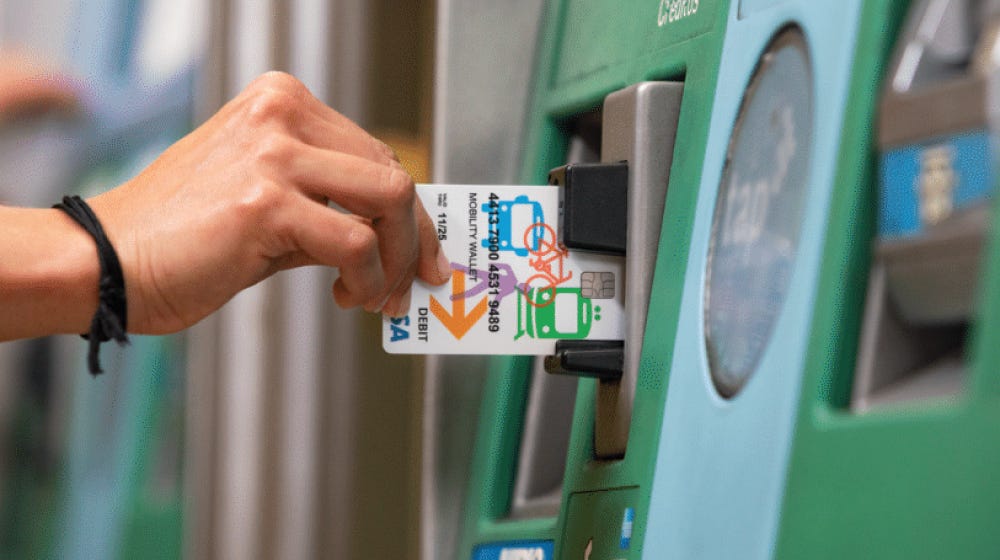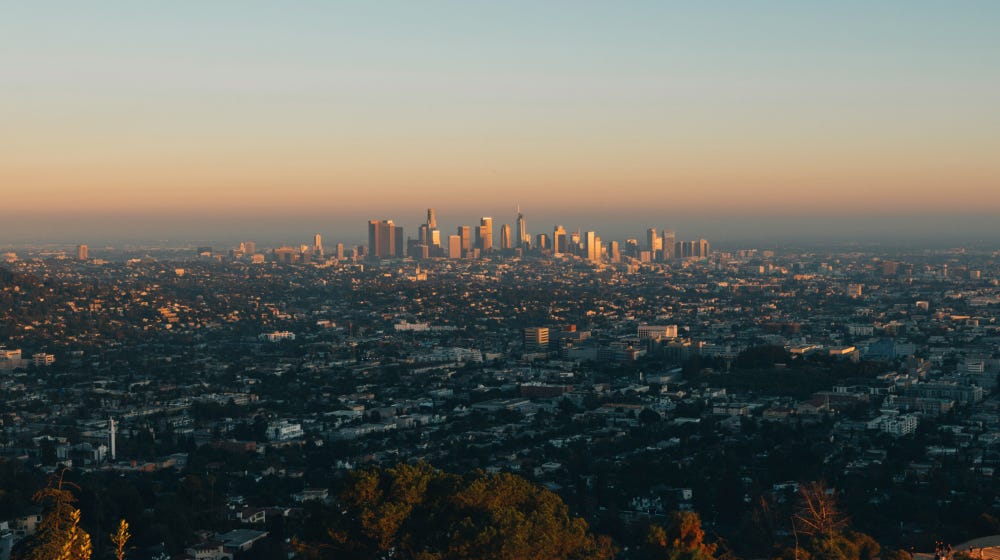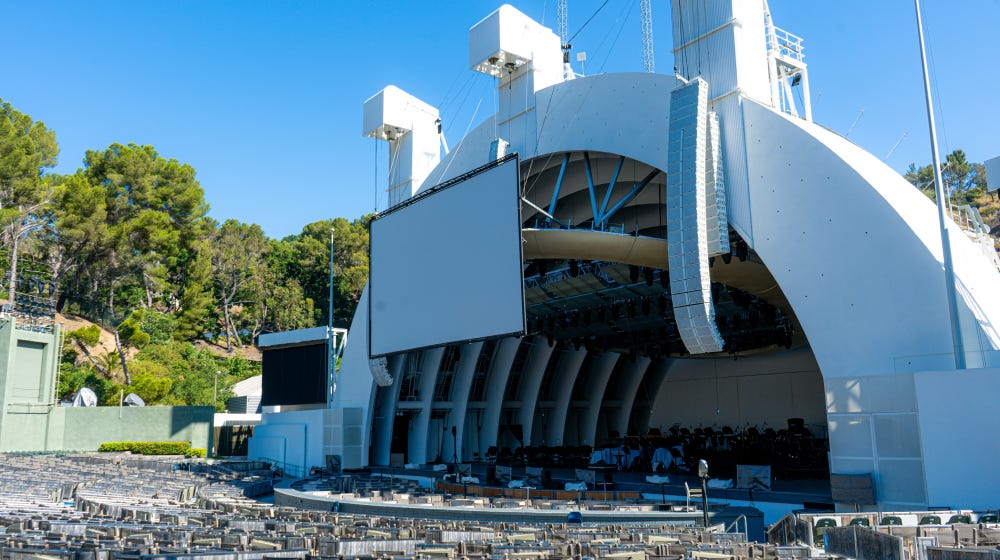Welcome to CoMotion NEWS, your weekly roundup of news and analysis of the mobility revolution. If this email was forwarded, you can sign up here for NEWS.
We’re only a month away from CoMotion LA. The main reason you should get your pass right now is, well, that it’s an awesome event where you’ll get to meet people from all over the world who are defining the future of mobility. The other reason to come is that it’s in Los Angeles –– sure, the weather will (probably) be great but L.A. is also where some of the world’s most exciting mobility stories are occurring. In recent years, the notoriously congested metropolis has woken up to the fact that people want and need alternatives to cars. The regional transit agency is poised to begin a $120 billion rail building spree, voters are forcing city government to put bike lanes on streets, roads are getting turned into parks, and the mayor is talking openly about a “car-free” Olympics in 2028.
So this week we’ve rounded up some of the biggest mobility stories from LA over the past year. Take a look and get your CoMotion LA pass now! We’ll see you next month!
What you need to know

Rail expansions galore: LA’s $120 billion long-term rail expansion plan is by far the largest in the country. In the coming years, the rail system will expand for the first time into the San Fernando Valley and Beverly Hills, as well as plenty of other neighborhoods that haven’t had rail since the demise of LA’s once-proud streetcar system in the 1960’s.
The transit ambassadors program: Two years after Metro launched the ambassadors program as a pilot, there are now 350 green-clad employees who roam the sprawling transit system, serving as a mix of customer service, social service and public safety. A survey of customers finds that 63% feel safer as a result of the ambassadors.
Angelenos take a stand against the car monopoly: In March, Los Angeles voters overwhelmingly approved Measure HLA, which requires the city to make certain pedestrian, bike and bus improvements whenever it repaves a road. The proposition overcame opposition from a variety of forces, perhaps most curiously the firefighters union. But it’s a good sign when the electorate in a city as car-centric as LA finally recognizes that they have nothing to gain by doubling down on the status quo.

An experiment with Universal Basic Mobility: Last year Metro launched a Mobility Wallet pilot, offering low-income residents debit cards loaded with $150 a month that can be used for a variety of transportation services, including public transit, car-share, and bike-share. Phase I of the program, which from May 2023 to April 2024, provided the cards to 1,000 low-income residents; Phase II of the program expands access to another 2,000 people.
We are just under one month away from the 8th and most impactful edition of CoMotion LA on Nov. 13-14, and the OMF Summit on Nov. 12.
Don't miss out on the future mobility gathering of the year — connect with the top companies, organizations, and C-suite executives, reimaging the way we get around our cities. We look forward to welcoming you soon.

Gondolas! Baseball fans will soon be able to hitch a ride from Union Station to Dodger Stadium in a 1.2-mile aerial gondola system. The idea has been pitched as a way to reduce congestion linked to the stadium. Response to the $500 million project has been mixed, with some residents in nearby Chinatown voicing opposition. LA Metro, however, maintains the project will benefit the entire area.
Waymo launches in LA: Less than a year after beginning to charge for rides in San Francisco, Alphabet-owned Waymo began to offer paid driverless rides in Los Angeles on a limited basis in March. Just a few months later, it dramatically expanded its footprint to 79 square miles of the LA area.
A park for people, not cars: The city is directing $2.5 million to shut down a road that for generations has bisected MacArthur Park in the low-income Westlake neighborhood. The road is not the only impediment to family-friendly green space, however: neighbors say the city needs to do something about the rampant drug use at the park.
A car-light Olympics: Los Angeles Mayor Karen Bass says she wants a “no-car Games” when her city hosts the Olympics in four years. She wants to bolster public transit in the infamously car-centric city to the point where visitors don’t have to rely on rental cars or Ubers to get to and from events. As for what to do about the city’s notorious local traffic, Bass points to former Mayor Tom Bradley’s successful efforts to reduce rush hour traffic during the 1984 Summer Olympics, mostly by encouraging employers to stagger their workers’ schedules. These days, the message to employers is simpler: could you just go remote for a couple weeks?
ICYMI
The Hollywood Bowl’s lessons for the Olympics: In a guest essay for CoMotion News, Joshua Schank, a partner at InfraStrategies and a senior fellow at the UCLA Institute for Transportation Studies, describes how the Hollywood Bowl made it easier for customers to get to and from the stadium despite reducing parking. Among other things, simply communicating with customers about the parking limitations got more people to opt for other modes of transportation.
CoMotion's mobility goodness brought to you by:
Jack Craver,
Editor, CoMotion NEWS
jcraver@comotionglobal.com
Write to us if you would like to suggest content for our next newsletter!
Partner with us
Our events CoMotion LA, CoMotion MIAMI, and the Monaco Hydrogen Forum represent a unique opportunity to build global awareness in the industry. Build influence, elevate your brand, and connect with ground-breaking companies and public sector leaders.
“It's really exciting to be at this year's CoMotion, with the best, most creative, and innovative minds together thinking about solutions on how we advance transportation.” - Laura Rubio Cornejo, General Manager, LADOT
Email us if you are interested in learning more.
YouTube | LinkedIn | Podcast | X





